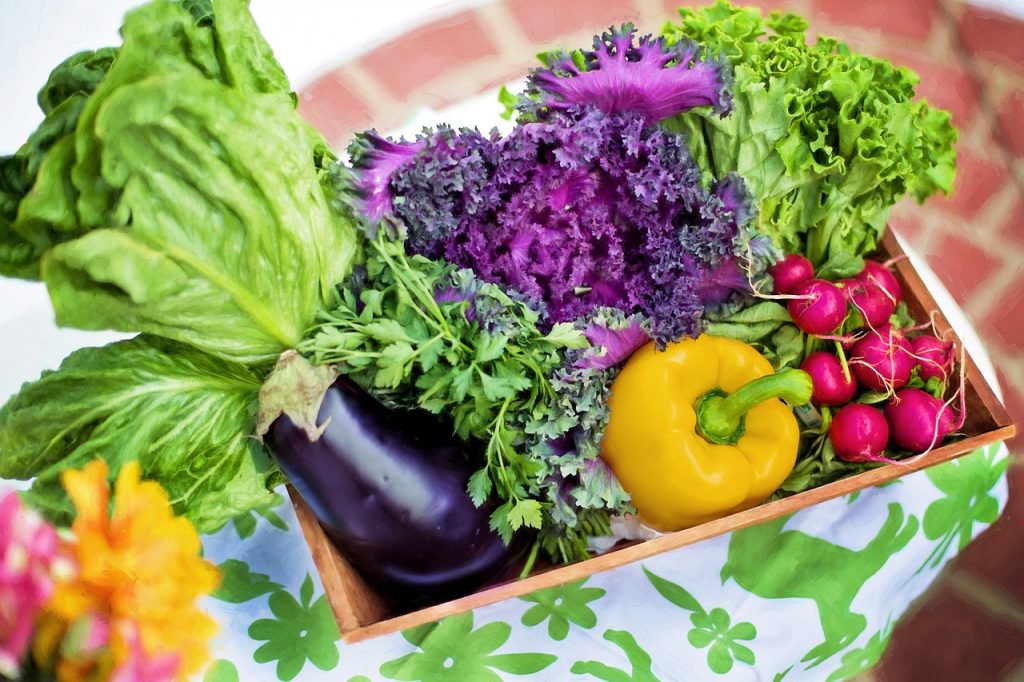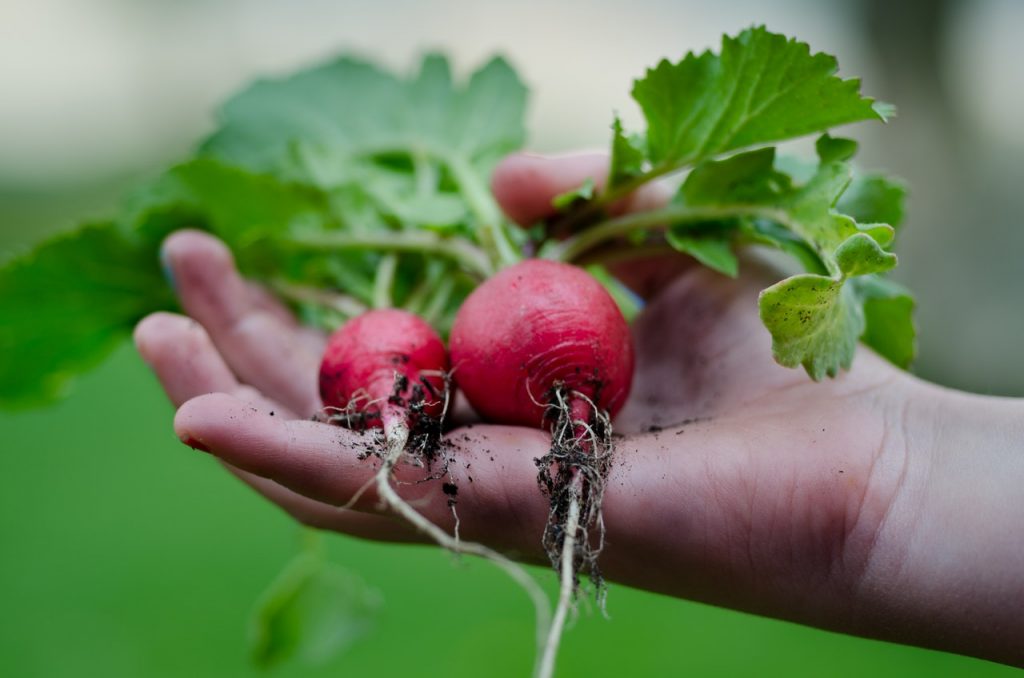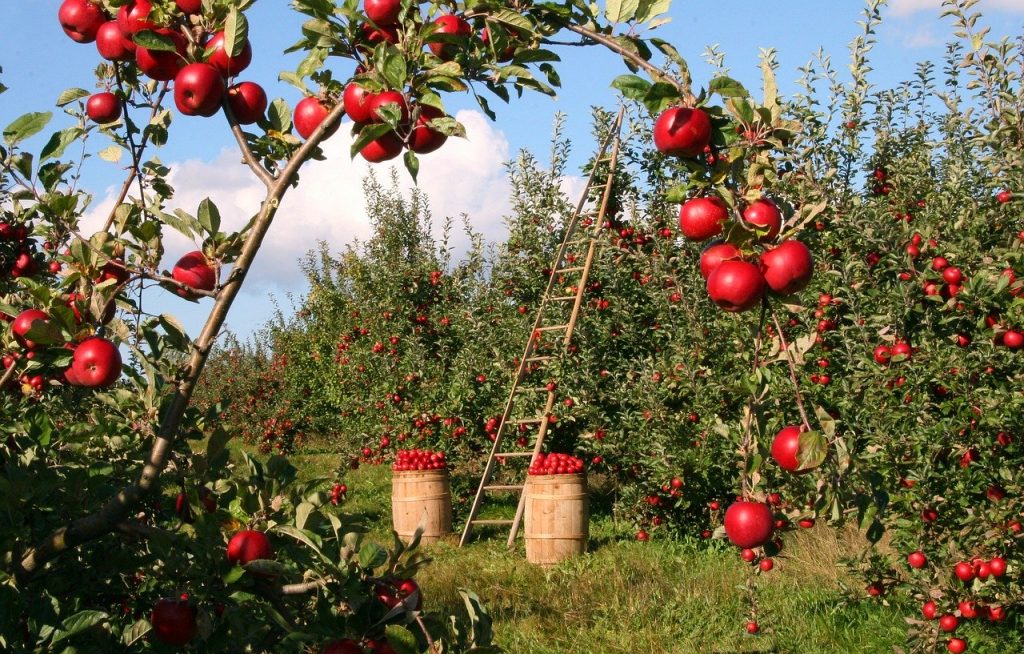In the life of every person there comes a moment when you need to start. A new house, a new business or a new garden, maybe even a new garden business — it always seems that you know what to do, but as soon as you go into the office or open the gate into the garden, all ideas disappear from your head, all your knowledge is mixed in a heap, and there is only one question: where to start? And how good it is when there is someone who can give you a piece of advice.
We have prepared a small “cheat sheet”, the purpose of which is to help you take the first steps into the gardening business.
Selection of varieties of vegetables and fruits

One of the most obvious and important tips for novice gardeners is the careful selection of varieties of vegetables and fruits, taking into account the climatic conditions in which they will grow. Using this advice will significantly increase the yield of cultivated plants, as well as their resistance to various diseases. Therefore, carefully read the recommendations before purchasing seeds of certain varieties of vegetables.
Planning is always a good start
Even people who have been tending their garden for many years need a plan because, during the break, you can forget how the annual crops were located in the last season. What can we say about the arrangement of the new site? Before you start planting, take a tape measure and carefully measure the area on which you intend to work. Draw up a project on paper, draw the locations of the beds and the alternation of garden crops.
Leave space for a recreation area.
What to plant
Decide what to plant, based on the characteristics of the site. If the garden is located on the sunny side, the soil is fertilized with hummus or manure, in the first year you can grow cabbage and cucumbers, in the second — carrots, celery, tomatoes, and onions, in the third — beans and peas. With this crop rotation, you will achieve the best result. In the case when it is not possible to wait for a certain time, divide the area into separate beds and plant unpretentious crops — potatoes, carrots, onions. Capricious vegetables include tomatoes, peppers, eggplants, zucchini, cucumbers and squash — they are too sensitive to temperature changes, watering, and are prone to all kinds of diseases. A little trick will allow you to economically use the sown area: before placing seedlings, plant plants with a short growing season — radishes, lettuce, onions… And planting seeds of the same crop with a difference of one to two weeks will help to harvest twice.
“Neighbours”
The main rule of a good gardener: — do not place crops of one family next to or one after another. In this case, plants are less affected by the same diseases. There are special tables of crop rotation in the beds — they determine the best predecessors and neighbors for a particular vegetable. For example, cabbage should be planted after potatoes, onions, peas (tomatoes are acceptable). Tomatoes, peppers, eggplants — after cucumbers, onions, legumes. The soil is suitable for cucumbers after peas, corn, and legumes. Onions are favorable to their predecessors: potatoes, tomatoes, peas. Table beets and carrots will grow in the garden that was previously occupied by cucumbers, potatoes, cabbage, and zucchini. Early potatoes will yield a rich harvest in soil where cabbage, cucumbers, onions, beans, or peas grew. On the same basis, “neighbors” are selected.
Do a soil analysis
Soil acidity is an important factor, it depends on which crops will feel comfortable on your site. If the acidity is high – think about planting heather, conifers, and hydrangeas, if alkaline — think about corn, euonymus, derain, gypsophila, astilbe. Almost any plant grows well on neutral soils with proper care. Remember that the pH can be leveled out. To reduce acidity you can use ash, chalk, dolomite flour, and to normalize excessively alkaline soil, use fresh manure, peat, nitrate or ammonium sulphate.
Health of the soil
If you want to have a fertile vegetable garden with healthy and tasty fruits for many years, you need to take care of the health of the soil. Biologically active soil allows plants to grow healthy and do not need a lot of fertilizers. It is not at all necessary to spend a fortune to buy fertilizers in stores, there are ways to feed your plants with natural, organic materials. If you can, always use organic fertilizers instead of chemical or complex fertilizers. For these purposes, any decent gardener should have a compost pit. Of course, composting will require additional labor, but the result will pleasantly surprise you.
Compost
Compost boxes are an integral part of any garden. Firstly, you do not have to carry the harvested weeds and other waste somewhere far. Secondly, rotten waste is an excellent natural organic fertilizer for garden beds. To speed up the decay process, you can add special bacteria.
If you are a gardener and do your annual pruning routine, we recommend buying a garden shredder for faster composting from tree branches.
Choose good quality seeding
Some of the gardeners are already planting early seedlings, while others are just going shopping in garden centers to buy seeds for the future harvest. And often in the heat of shopping euphoria, we grab whatever comes close to hand. And in vain!
We would advise you to buy all your seeds and seedlings only in large specialized centers from well-known manufacturers and breeders with a name. A granny in a market or a salesman in a shady tent can tell you a beautiful story about huge harvests. But in fact, seedlings or seeds can be infected or weakened by hereditary diseases … While large producers are closely monitoring this.
Plant pest repellent plants

Experienced gardeners necessarily grow protective plants on the site. They scare away harmful insects from planted crops. Such plants can be divided into two types:
Disorienting pests. With their strong scent, they prevent insects from discovering plants that are attractive to them.
Deterrent. Their smell drives away pests.
The former include basil, parsley, thyme, garlic, sage.
The second group includes geranium, mustard, calendula, coriander, mint, rosemary, dill, fennel, and others.
For example, dill, familiar to everyone, perfectly protects cabbage from aphids, moths, and butterflies.
A mulch is your assistant
It is not always possible to dedicate all your time to your garden business. This is where mulching can help. It is especially good if the mulch is natural (straw, wood chips or shavings, hay, etc.). By using the mulching method, you can reduce the amount of weeding and watering. There is still free time to relax with your friends and family.
Do not force yourself
The trouble of many summer residents is the inability to correctly calculate their own strengths and needs. The desire to break the fifth bed of onions and grow a new variety, of course, is understandable, but unjustified. After all, you will have to work a lot, and the resulting harvest will be clearly superfluous.
Therefore, it is better at the beginning of the season to soberly assess the required amount of vegetables and fruits for the family and refuse all plantings in excess of this norm. Exactly, for this reason, you will have to try to predict the market and the number of goods that you will be able to sell if you want to start a successful gardening business.
Garden equipment and tools

The advice on buying high-quality gardening tools is not taken seriously by many novice gardeners. Meanwhile, saving on quality gardening tools in most cases leads to fatigue, low productivity, and injuries.
It is preferable to purchase garden tools in specialized stores, rather than from roadside sellers. In addition to tool, you may also want something like these harvest totes to carry and store your harvest in. Correct storage can help to minimize losses that might occur when harvesting vegetables.
Choose inventory with a manufacturer’s stamp.
It is important to choose a good pressure hose too since watering is one of the main activities in your garden and all your harvest depends on it. Every serious businessman needs good equipment, don’t forget that!
Bonus
Bonus advice for novice gardeners is related to watering plants — it is important not only to carry out this procedure in a timely manner but rightly. When irrigating vegetables in the garden, be careful not to get water on their leaves. An experienced gardener knows to water right at the root. Ignoring this advice can lead to the development of plant diseases.
You are not alone
There are not always a lot of friends and colleagues who can support a novice gardener or share his interests. But it doesn’t matter! Gardeners are very enthusiastic and sociable people. Social networks and the Internet are a limitless area for communication of interests, exchange of experience, and sometimes even rare seeds! Take your time and eventually, you will find your garden soul mates. Also, if you want to know more about starting a business, you can find relevant information at companyformationlatvia.com
Conclusion
A plant, like any living creature, feels an attitude towards itself. If you work just because you have to, without a soul, then the harvest won’t be as good as you want it to be. And if you put your whole soul and work in pleasure, then the plants will respond kindly to care.


